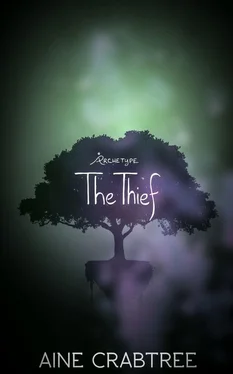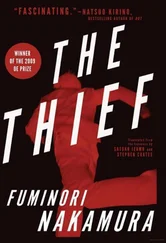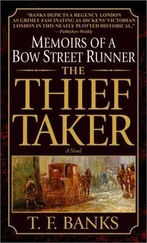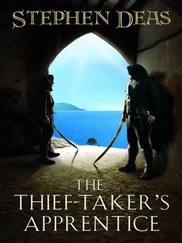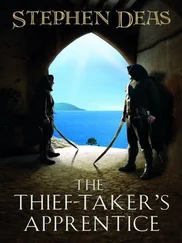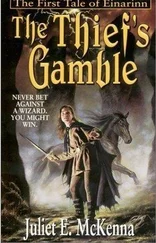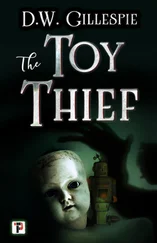THE THIEF
by
Aine Crabtree
Jul
A cab horn blared close behind me as I splashed through a puddle onto the sidewalk. I glanced fearfully back at the vehicle through the drizzle, clutching my umbrella and my sack of Chinese food. The back wheel hit the puddle and a cascade of dirty water drenched my lower half. The cab zipped around the corner and was gone.
New York always knew how to make you feel loved.
I walked quickly up the sidewalk, feeling the runoff puddling in my boots, soaking through my socks. My dad would be furious if I wasn't home on time with food. He had been working so many long nights at the university lately, I'd hadn't even seen him in two days. He'd done this before, coming home on the late train after I'd gone to sleep, leaving again before I got up for school - but today was Sunday. He always came home on Sunday, no matter what. I didn’t want to disappoint him the one day I knew he’d be around.
Finally, a stroke of luck - someone had fixed the elevator, so I didn’t have to climb three flights of stairs. I checked my reflection in the mirrored interior when the doors shut. My dark hair, though straightened this morning, was curling over my collar from the damp. My skin, coffee with three creams, took on a sickly green tint in the weak florescent light flickering overhead. I looked overly thin, too, like I’d been stretched too tall. I’d grown half an inch over the summer, and I hoped I was finally done. I was nearing 16, and girls were supposed to stop growing by then. No matter how much I ate I never seemed to get curves.
I wondered, not for the first time, what my mother had looked like. My skin, at minimum, had to be hers - Dad was as pale as they came. I stared in the mirror at the round face, the large eyes, the smooth features, and saw almost nothing of my father. Maybe the height. Maybe the ears. It stood to reason that just about everything about me came from her, but I had no way of knowing. I had learned from a very early age to never mention her, not even in passing - it put my father into such a horrible mood. The sum total of my knowledge of her was that her name was Kyra, and she’d left us right after I was born.
I only knew her name because Dad talked to her sometimes, under his breath, when he was frustrated. He’d come home with stacks of research from the university - which were none of my business, he’d repeatedly told me - and sit in his room muttering to himself, and to her.
Readjusting my grip on the bag of food and my tightly-wrapped umbrella as the elevator opened, I stepped into the hall. I reached out to unlock our apartment, but the door just pushed right open. The squeak of the hinge was loud in the hall. I paused in confusion.
“Dad?”
Dad was a genius. He never forgot anything, not his keys, not the train schedule, not even the number of the Thai place that had been closed for years. He could recite entire paragraphs of books with perfect recall - and always seemed angry when I couldn’t. I wished I had his memory, but I just didn’t. Point being, there was no chance he would have forgotten to lock the door, much less leave it open.
Fear gripped me when I saw the state of the apartment. Everything was in utter disarray - bookshelves ransacked, cabinets hanging open, a chair overturned. “Dad!” I called, my voice pitching higher. I tossed the food onto the kitchen counter and hurried to his room, where I wasn’t supposed to go, but it was an even bigger wreck. His bedsheets hung haphazard from the mattress, as if someone had rifled through them. His closet was open, half his clothes missing. Though his room was always packed to the brim with books, they had always been fastidiously organized in neat stacks. Now the stacks had tumbled, their open pages flipping back and forth from the breeze coming from the open window. Outside, the rain fell steadily.
Hand trembling, I reached to pick up one of the books. It was open to a painted illustration of an old-fashioned hand mirror, edges wrought of silver vines.
Lightning flashed. I looked up at the window. I caught a pair of wide, yellow eyes staring back at me, and I screamed.
Jul
Once upon a time, there was a girl on her way to her grandmother’s house.
My first impression of the house was that it knew something I didn’t, and wasn’t going to tell me any time soon. The flaking shutters could have been winking. The aged front deck sagged ever so slightly, as if in a knowing smile. The yard was freshly mowed but mostly composed of things that weren’t grass. Clover predominated, and there were several other little flowering weeds I couldn’t name. I didn’t know much about southern plants. Three days ago I didn’t even know I had family in Havenwood, Alabama.
I lifted my suitcase from the cab. The old Victorian home had certainly seen better days, I’d wager. The forest pushed in from either side of the yard as if it were trying to reclaim the land. Ancient farm equipment jutted from the lawn like tombstones. I couldn’t begin to guess what the spindly, rusted metal devices had once been used for. They looked more like torture devices than ploughs or harvesters.
An elderly woman came out the front door and descended the steps with arthritic hesitation. This, I presumed, was my grandmother. My heart thumped in my chest. I hadn’t known I possessed any family at all besides my father. He’d never mentioned any. But when he’d disappeared, child services in New York had done some digging, and found that my dad’s mother was still living in Alabama. Apparently this was where he’d come from.
I knew he couldn’t always have been a university professor, but this wasn’t what I was expecting.
Her face was wrinkled and stern. She wore one of those faded cotton dresses patterned with tiny geometrical shapes that had probably been hanging in her closet since the 80s. Her silver hair had been starched into a veritable helmet of curls.
Bea Graham, the child service people had told me before putting me on a plane. Your grandmother’s name is Bea Graham.
I wanted something to hide behind. She couldn’t want to suddenly have to take care of a teenager. Who on earth would want that? I was loud and messy and always in the way...
Her face set into a frown, she didn’t even look at me. She ambled up the walk to the cab driver, and they settled up the fare. It wasn’t until all my bags were unloaded and he was driving away that she looked at me directly.
“Juliet,” she said.
I swallowed. “Yes ma’am.” I didn’t like being called my full name, but I wasn’t about to correct her. She barely looked at me for half a second, and then was fussing with my bags.
“Well, let’s get your things inside,” she said, pulling one of the rolling bags with her down the sidewalk. I followed with the other two bags and a sinking heart. She clearly didn’t like me. How could she? I was invading her life. I wasn’t doing it on purpose. There was nowhere else for me to go.
The interior was like stepping into a museum. Clean, but nearly everything inside was a step away from falling apart. The furniture must have once been beautiful, but time had rendered it faded and threadbare. Sepiatone photos in chipped frames lined the walls. Rugs covered extensive wood floors. Old floral wallpaper curled where it met the baseboards.
“Through there is the kitchen,” she said, pointing down the hallway bisecting the house. “Your room is upstairs.”
We dragged my things up to the second floor, which smelled even mustier than the first. A stray fluff of dust cartwheeled through beams of light from the windows. The hall held several doors on either side of the landing. She led me to the right, opening a door to a room that was clean, but nearly bare. It had basic furniture - a dresser, a bookshelf, and an old four-poster bed, but beyond a faded rug and a small lamp it really had nothing else. The walls were blank, the closet was open and empty, and even the bookshelf was vacant. A thin quilt and sheets sat in a folded stack on the end of the bed. A small electric fan sat on the floor, moving the air slightly. Even with that, the room was rather warm, I noted. But then I was starting to think that was a trend in the south.
Читать дальше
